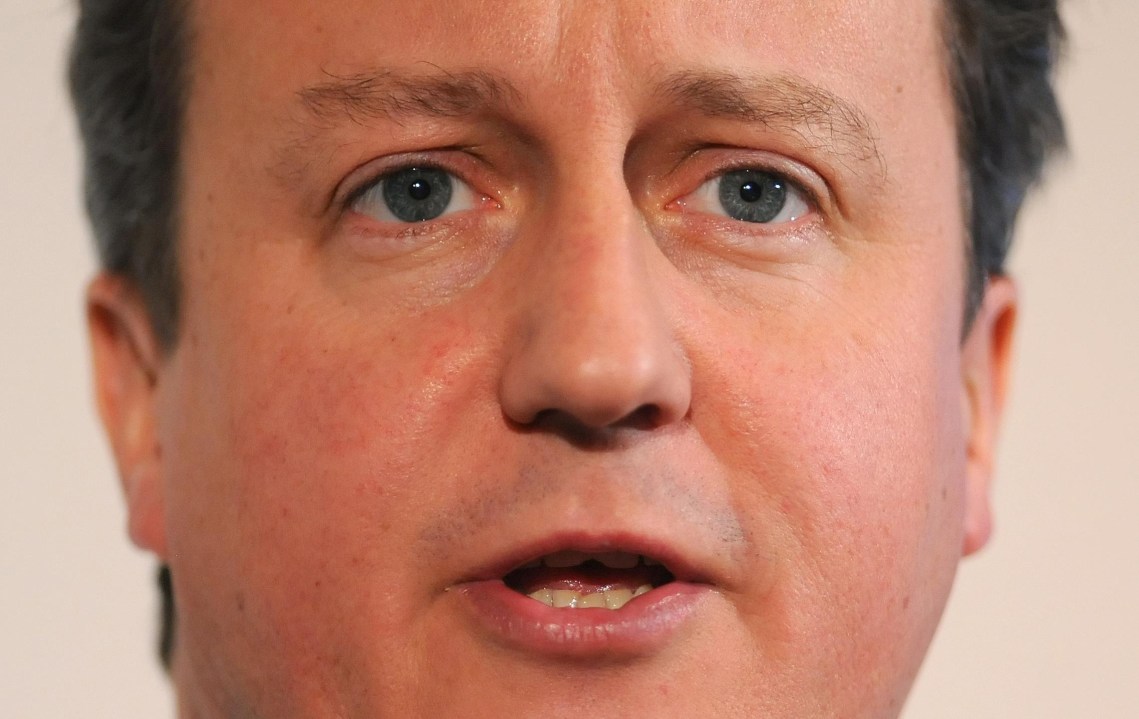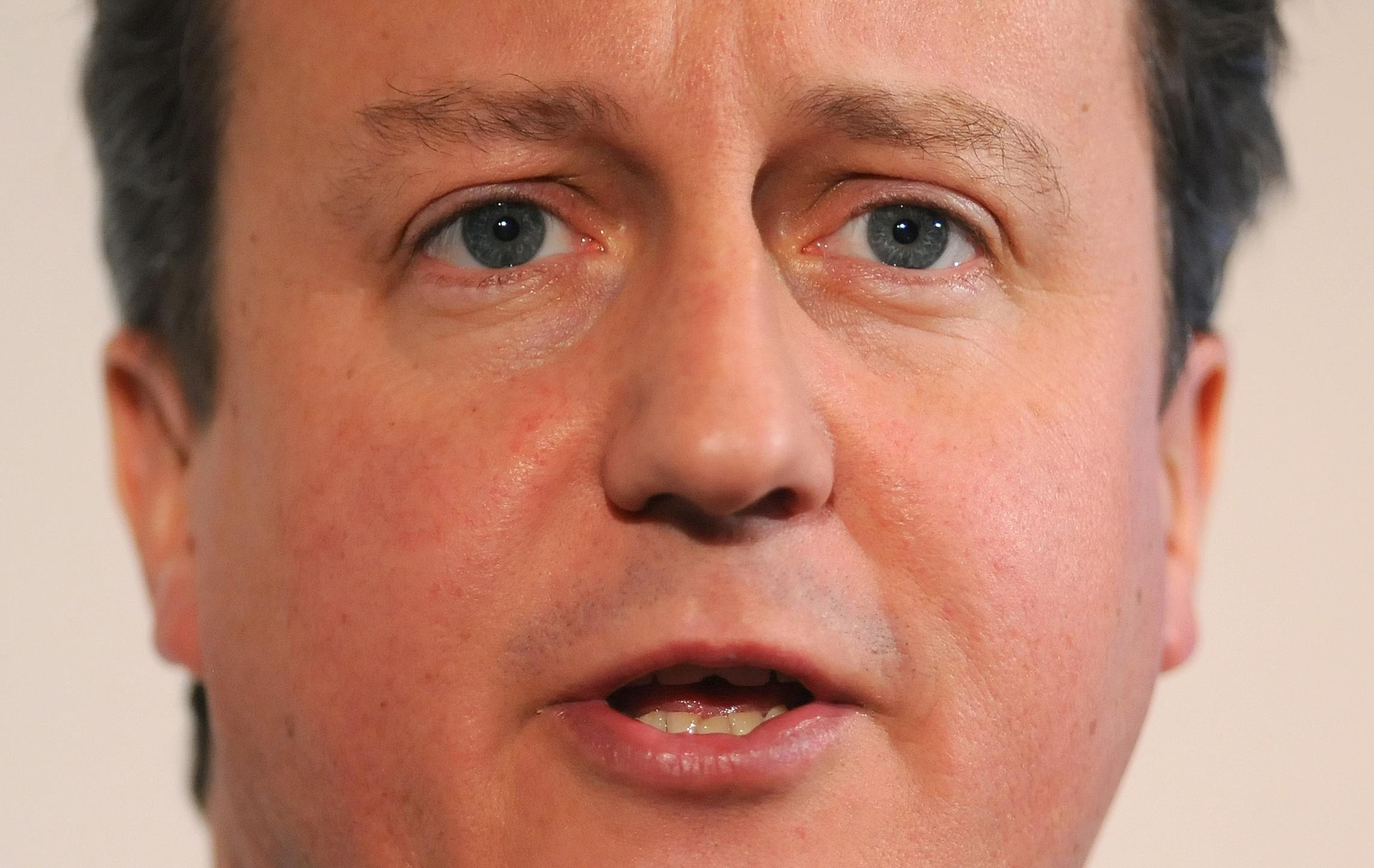The latest issue of The Spectator is out tomorrow, of course
– but we thought CoffeeHousers might like to read this piece by Ross Clark in advance. It’s about what he calls David Cameron’s ‘tragic flaw’:
impoliteness.
Premierships do not end in failure, as Enoch Powell once asserted, but in tragedy. They start with a beaming figure disappearing behind the door of No. 10 – even Edward Heath, immortalised now as
the Incredible Sulk, entered with a radiant grin. And they end with a haunted shadow of a politician creeping out to a waiting car, his every character flaw having been chiselled to destruction.
Over the past week, the tragedy of David Cameron has become apparent. It may be a few years before he leaves office, but from here onwards the narrative is clear. Dave is a man who will finally be undone by his failure to understand that it is his natural aloofness, not his class background, that alienates the people who should be his friends.
Any politician can look uncomfortable when required to eat, drink or play for the cameras. But when Dave seeks to ingratiate himself with the masses he exudes a sense of fear. The early attacks on his Bullingdon background have clearly eaten away at him. His worry, from the moment he became Conservative leader, was that the public might reject him over his privileged background.
He attempted to put this right by rolling up his sleeves, pedalling his bike and biting into Cornish pasties (in spite of last week’s embarrassment over the nonexistent stall on Leeds station, there is video evidence of him doing just this on an Oxfordshire market during the 2010 election campaign, before putting the thing back in a paper bag and folding it over like a piece of hazardous waste for incineration). But while he attempted to establish himself as the social equal of the proletariat, he developed something that will ultimately prove far more destructive to his career than a posh background: a sense of moral superiority over his natural supporters.
Poshness and aloofness are entirely different things. You can be the most frightful snob and yet still manage to engage with people around you. The late Lord St John of Fawsley was the perfect example: he was charming to everyone, wherever they fitted in his sense of social strata. On the other hand, you can be working class, lower middle class – even cherish an image as a man of the people – and yet carry with you a deep sense of disdain towards those with whom you work. That is aloofness – and it is Cameron’s weakness.
As soon as he became Conservative leader, he decided that his own backbenchers, and the envelope-stuffers of the constituencies, were an impediment to his progress. It was they, he figured, who embodied the toxic Tory brand, with their petty suburban values. Detoxification, he reasoned, meant snubbing them and reaching beyond the party boundaries to a new constituency of the apolitical. To this end, he devised a series of policy positions calculated to irritate Conservative rank and file – on grammar schools, gay marriage, law and order – and create a Conservative equivalent of Blair’s clause four moment.
However, the reaching-out bit was always illusory. Dave has never really meshed with the masses, nor made friends much beyond Notting Hill and the horsey Chipping Norton set. Most prime ministers are gradually drawn into an ever-smaller inner circle of colleagues and advisers as they grow paranoid, but whereas it took Thatcher and Blair the best part of a decade to retreat to their bunkers, Cameron seemed to do so as soon as he was elected leader. In his early months, with goodwill towards him at a peak, it should have been easy to court his MPs, make them feel important. Instead, many grew frustrated that all issues of policy were being decided by a small cabal of advisers.
If that is how you make your minions feel when things are going well, you are not going to carry them with you when things turn rough. And how much more poisonous the situation becomes when the ignored minions discover that while Dave is too busy to meet them, he still has the time to entertain in his Downing Street flat – at least those who have £250,000 to spare.
It is difficult to see how Dave can retrieve the situation: those close to Westminster report a distinct lack of sympathy on the back benches during the troubles of the past week. Ironically, it might have been better had he been more, not less, posh. His insecurities are those of a second-division toff: one whose connections with royalty are of the illegitimate kind, one who is descended from tradesmen posing as landed gentry. Oxbridge dining societies in the 1980s were full of such types, who had an emotional need to assert their aristocratic identity by dressing up and being generally obnoxious.
Much of Dave’s career since becoming Tory leader has revolved around the desire to shake off this embarrassment. But it is not his background or youthful indiscretions which will do for him in the end; it is the enemies he has made in the process of trying to detoxify his own personal brand.








Comments